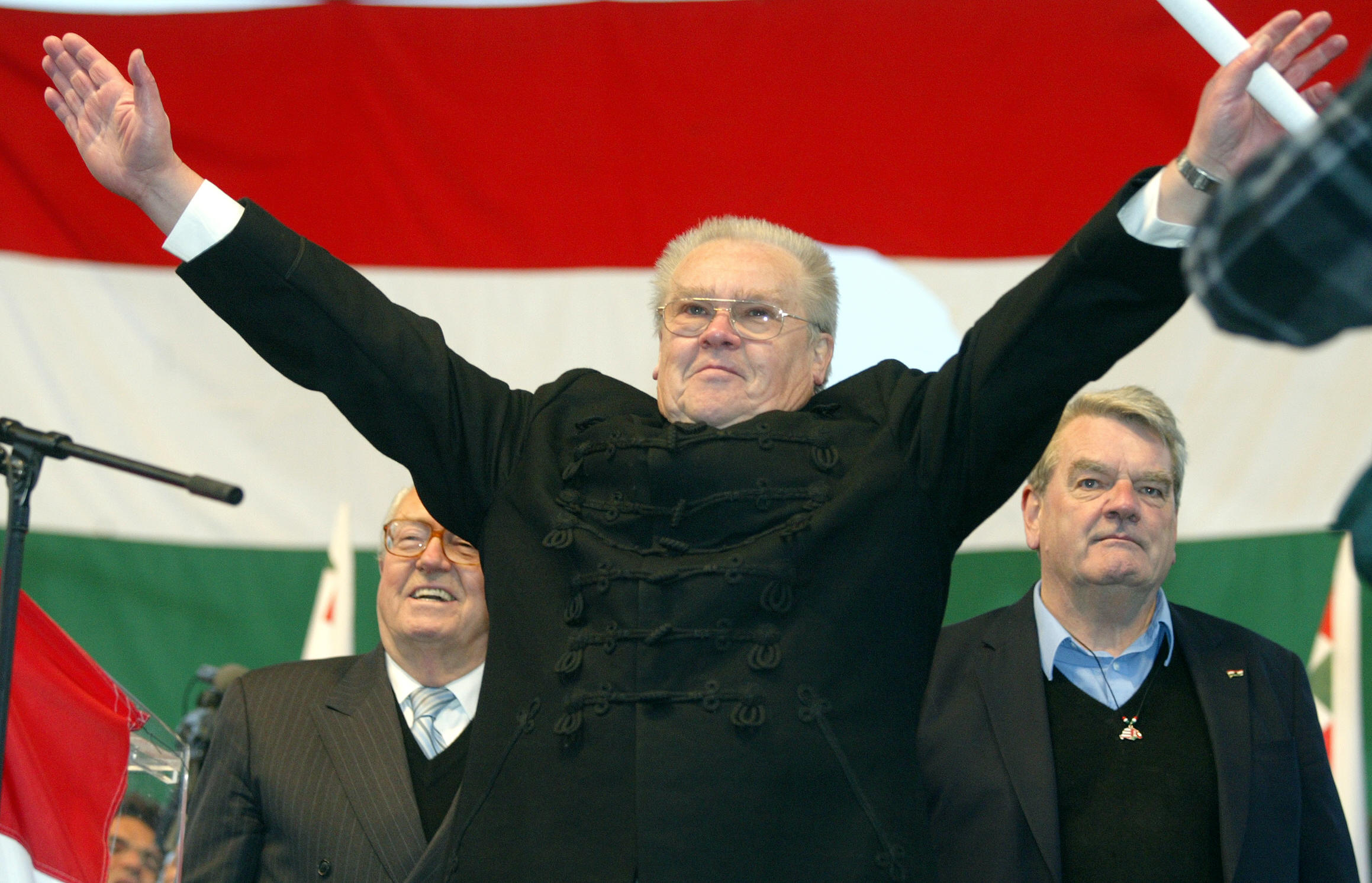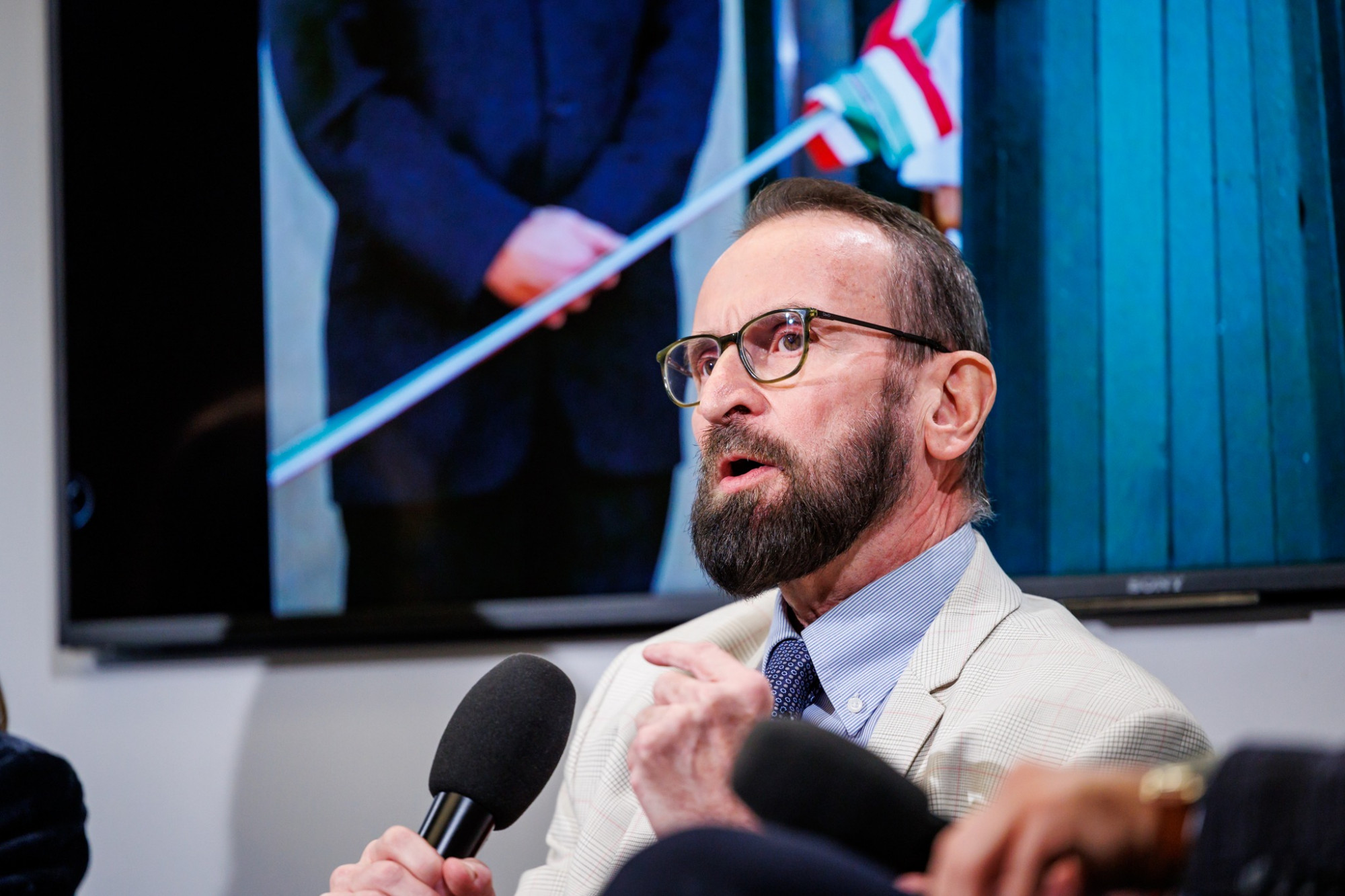Far-right politician to receive statue in Hungary
- Stay updated on the latest news from Hungary by signing up for the free InsightHungary newsletter
Csurka statue to be revealed in Lakitelek
On 7 December, the statue of a controversial far-right politician, István Csurka will be revealed in Lakitelek. The ceremony is organised by the National Forum and the Young Conservatives for the Nation Association. Mária Schmidt, Director General of the House of Terror, and Kristóf Szatmáry, Fidesz MP will both give speeches at the event - 444 reports.
A think tank close to the Orban administration called XXI Century Institute, (also led by Schmidt), held a commemorative conference on Wednesday to mark the 90th anniversary of Csurka's birth. The invitation to the event says "he became a victim of character assassination, and his opponents tried to discredit him in every way possible, in order to prevent a meaningful dialogue to achieve historical justice".
Csurka's anti-Semitism was also discussed at the conference. According to Schmidt, he was condemned by the "American empire", where today "anti-Semitism is context-dependent".
Fidesz politican who was involved in an orgy during Covid lockdown returns to public life
At the request of Mária Schmidt, former Fidesz MEP Jozsef Szajer founded the Free Europe Institute. Szajer caused controversy four years ago when he fled an illegal orgy during Covid lockdown in Brussels. The conservative politician attempted to escape along a gutter wearing a backpack containing narcotics.
He left the board of trustees of the public foundation that also runs the XXI Century Institute, but now he is returning. His recent statement reveals that he is no longer a member of Fidesz, and that he no longer wished to be a politician and that e used the last 4 years for "intellectual development". Szajer has also been battling a serious illness.
"I will no longer comment on private matters related to my resignation in December 2020, which are part of my legally protected private life and are no one's business but my immediate circle," Szajer said referring to his 2020 controversy.
Hungarians visit doctors the most in Europe
On average, people in Hungary visited a doctor more than ten times in person or online in 2022, putting us among the leading European countries. However, these frequent visits to the doctor are not reflected in their health: the country has been leading the list of cancer deaths for years, has a high suicide rate and life expectancy increased by only a few months between 2000 and 2021 -- OECD Health at a Glance: Europe report shows.
The latest figures from the report published last week provide a comprehensive picture of the health and well-being of the European region each year. Hungarians take a visit to the doctor's office fairly frequently: in 2022, they visited the doctor 9.5 times in person and used telemedicine 1.3 times on average, leading the European countries. This data was measured in 16 European countries and the resulting average is 6 times per year. Swedes are the least likely to spend time at the doctor, with 2.3 face-to-face visits and 0.8 online visits.
The highest cancer death rate was in Hungary again, with 245 deaths per 100,000 women and 415 deaths per 100,000 men from cancer.Hungary also topped the list in 2016, with an average of 345 cancer deaths per 100,000 people, but in 2019, 328 cancer deaths were recorded in Hungary.
Hungarian-Dutch relations rnter ‘new dimension’ with Wilders in government, Hungarian FM says
Hungary's Foreign Minister Péter Szijjártó said Geert Wilders’ far-right Freedom Party (PVV) in the Dutch coalition government is a transformative moment for relations between the two countries. Szijjártó described this development as entering a “new dimension” of mutual respect.
“With the Freedom Party now in government, we are aligned on key issues such as migration, where we both advocate for safeguarding external borders,” Szijjártó said. He criticized Brussels’ “pro-migration” stance, arguing that robust border protection is essential for preserving the Schengen Area’s integrity.
Szijjártó also emphasized shared economic priorities between Hungary and the Netherlands, noting both nations’ roles as major exporters in Europe and beyond. Strengthening free trade, he said, aligns with Hungary’s agenda as the current holder of the European Council presidency.
“Protecting borders and ensuring seamless trade are fundamental to our collective future,” he said, signaling closer ties between the two governments under this new political alignment.



